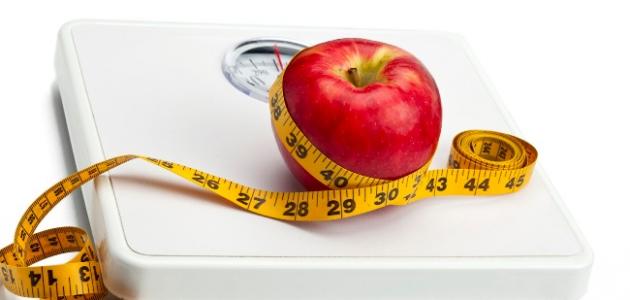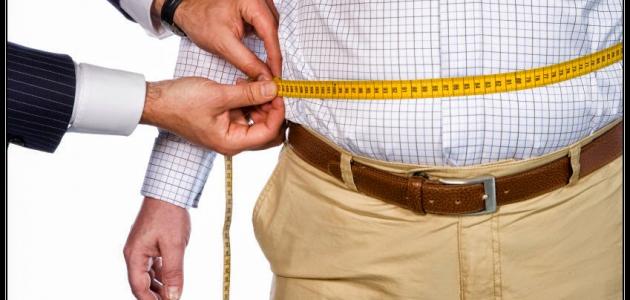obesity
Obesity is a complex disorder that includes excessive accumulation of fat in the body. People with obesity suffer from: Especially severe obesity, it increases the risk of developing weight-related health problems. Modifying the diet and increasing physical activity can contribute to weight loss. Surgery and medications, which in some cases are prescribed by a specialist doctor, can be additional options for losing weight. A person is considered obese when the body mass index (in English: BMI) is equal to 30 and above, and is calculated by dividing the weight in kilograms by the height in meters squared.
Natural means of losing weight
There are many natural weight loss methods that contribute to losing weight and getting rid of fat, the most important of which are:
- Avoid eating processed foods: These foods are high in sodium and low in nutritional value compared to unprocessed food. A study also showed that eating a lot of processed foods leads to addiction to them, which makes people eat excessive amounts.
- Eat sources rich in protein: A study showed that following a high-protein diet may contribute to reducing the risk of obesity and treating it, and eating 30-25 grams of protein during one meal has a positive effect on appetite control and weight control. Protein-rich foods include the following:
- legumes;
- chicken.
- fish.
- Low-fat cheese.
- Quit eating added sugar: As most of the sugar consumed by individuals is fructose. Which is metabolized in the liver, turns into fat, and then circulates in the blood, which may cause weight gain.
- Drink dark coffee: Coffee may improve the metabolism of carbohydrates and fats in the body, as a study showed the relationship between drinking coffee and reducing the risk of diabetes and liver disease.
- Drinking water: Drinking enough water may contribute to increasing metabolic processes in the body, and drinking water before eating may help reduce the quantities consumed, in addition to drinking water instead of sweetened drinks helps reduce the calories consumed during the day.
- Avoid eating refined carbohydrates: Eating sources of these carbohydrates may negatively affect the body’s metabolism and increase fat gain. Therefore, eating sources of complex carbohydrates in whole grains helps to lose weight. Refined carbohydrates include the following:
- White Rice.
- White bread.
- White flour.
- Added sugar.
- Most types of pasta.
- Eat more vegetables and fruits: Following a diet rich in vegetables and fruits may help lose weight and maintain it.
- Drink green tea: Green tea contains caffeine and is considered a rich source of antioxidants. Which are called catechins (in English: catechins); Which is believed to contribute, in conjunction with caffeine, to enhancing fat burning.
- intermittent fasting Intermittent fasting is defined as a dietary pattern that revolves around fasting for periods, then eating, and some studies have shown that intermittent fasting is an effective way to lose weight.
- Follow a low-carb diet: Many studies have shown the role of following this method in helping to promote weight loss and general health.
- eat breakfast: Many people believe that skipping breakfast is an effective way to reduce calories consumed, but what happens is the opposite, and larger amounts of food are eaten during the day, and studies have shown that people who eat breakfast have a lower body mass index than those who skip eating this meal.
- Controlling the surrounding environment: Controlling the surrounding environment contributes to reducing the calories consumed, filling the kitchen with healthy options, and choosing the appropriate restaurant.
- Weight lifting: Practicing weight lifting 3-4 times a week after warming up helps burn more calories and also prevents slow metabolism.
- Eat slowly This is because realizing the feeling of fullness requires time, so eating slowly increases enjoyment of the meal and enhances the feeling of fullness.
- Get enough sleep: Not sleeping enough increases calorie intake and increases behaviors that lead to weight gain.
- Doing high-intensity interval training: Doing high-intensity exercise (in English: HIIT) helps promote weight loss.
- Eat only to reduce feelings of hunger: Eating to the point of fullness means gaining more calories, and a person’s needs for carbohydrates, protein, and healthy fats depend on several goals; Including weight loss, health status, and others.
Causes of weight gain
Weight gain occurs due to many reasons, the most important of which are:
Read also:How do I lose weight without diet or exercise- Calorie intake: Eating larger amounts of calories than one burns leads to weight gain, and burning calories consumed during the day keeps the weight within the healthy range.
- genes: Genes contribute to the development of obesity as a result of their influence on many factors. Such as appetite, satiety, metabolism, intense desire to eat, distribution of fat in the body, and the tendency to make eating a way to overcome stress.
- Surrounding factors: Researchers showed that children whose mothers smoked during pregnancy were more likely to be overweight compared to children of non-smoking mothers, and that children who were breastfed for more than three months were less likely to be obese compared to those who were breastfed for less than three months.
- Quality of food consumed: There are some phrases that mislead the buyer; Like foods low in fat, most of these foods are high in sugar, in order to improve the taste and acceptability of the food.
- Lack of physical activity: The daily lifestyle of many people does not give room to perform any simple physical activity.
- Stress and lack of sleep: These two factors affect appetite and diet, and many studies have shown that people eat larger amounts of food in cases of depression, anxiety, or any other emotional disorder.









